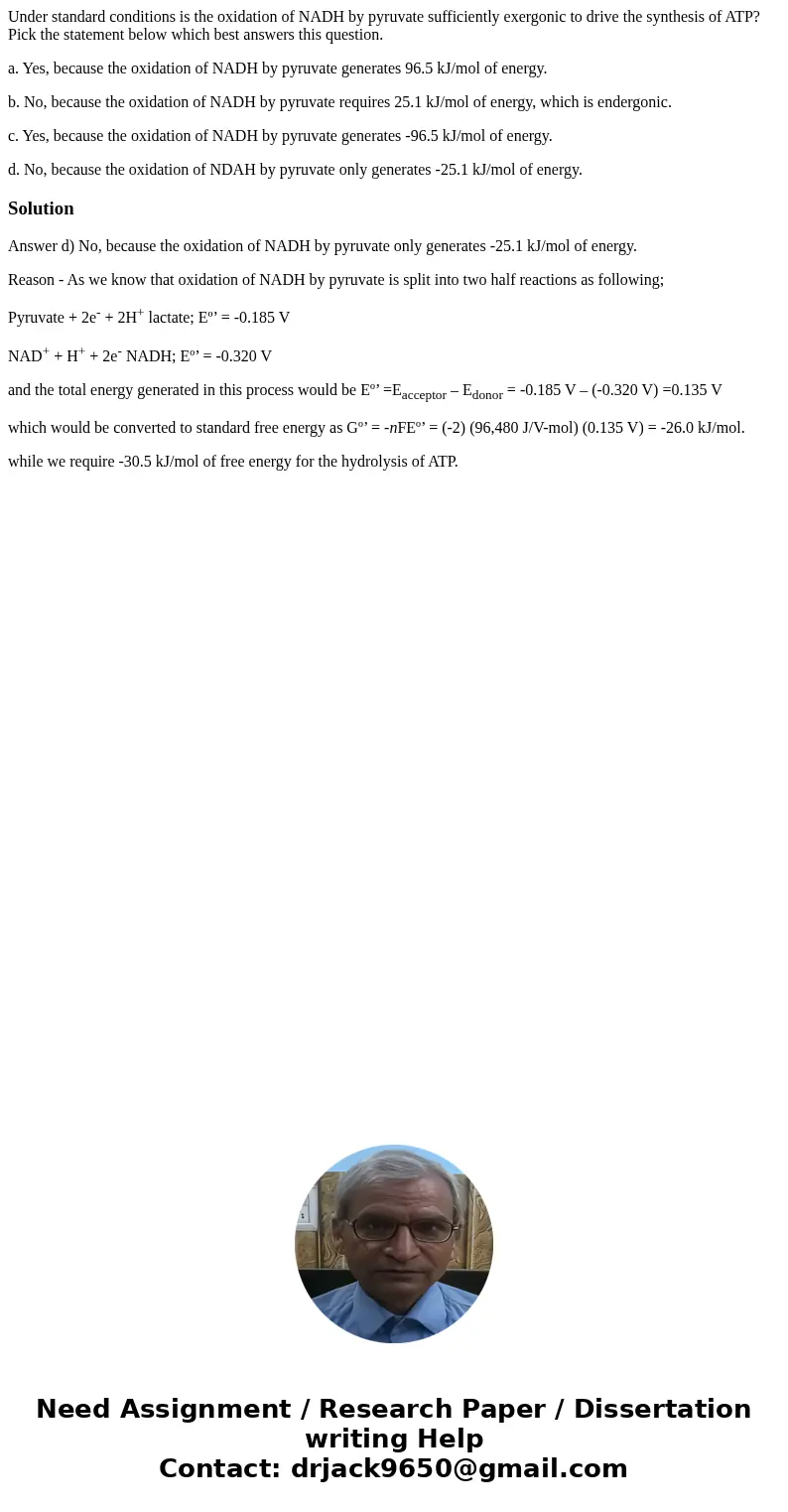Under standard conditions is the oxidation of NADH by pyruva
Under standard conditions is the oxidation of NADH by pyruvate sufficiently exergonic to drive the synthesis of ATP? Pick the statement below which best answers this question.
a. Yes, because the oxidation of NADH by pyruvate generates 96.5 kJ/mol of energy.
b. No, because the oxidation of NADH by pyruvate requires 25.1 kJ/mol of energy, which is endergonic.
c. Yes, because the oxidation of NADH by pyruvate generates -96.5 kJ/mol of energy.
d. No, because the oxidation of NDAH by pyruvate only generates -25.1 kJ/mol of energy.
Solution
Answer d) No, because the oxidation of NADH by pyruvate only generates -25.1 kJ/mol of energy.
Reason - As we know that oxidation of NADH by pyruvate is split into two half reactions as following;
Pyruvate + 2e- + 2H+ lactate; Eº’ = -0.185 V
NAD+ + H+ + 2e- NADH; Eº’ = -0.320 V
and the total energy generated in this process would be Eº’ =Eacceptor – Edonor = -0.185 V – (-0.320 V) =0.135 V
which would be converted to standard free energy as Gº’ = -nFEº’ = (-2) (96,480 J/V-mol) (0.135 V) = -26.0 kJ/mol.
while we require -30.5 kJ/mol of free energy for the hydrolysis of ATP.

 Homework Sourse
Homework Sourse